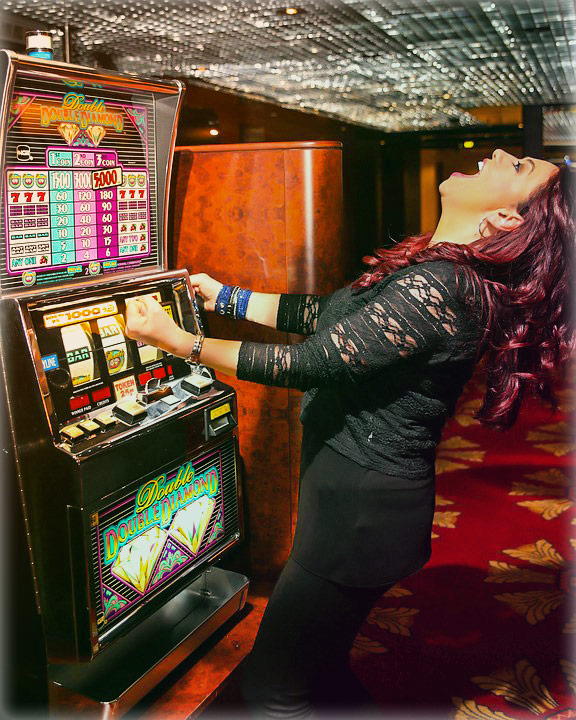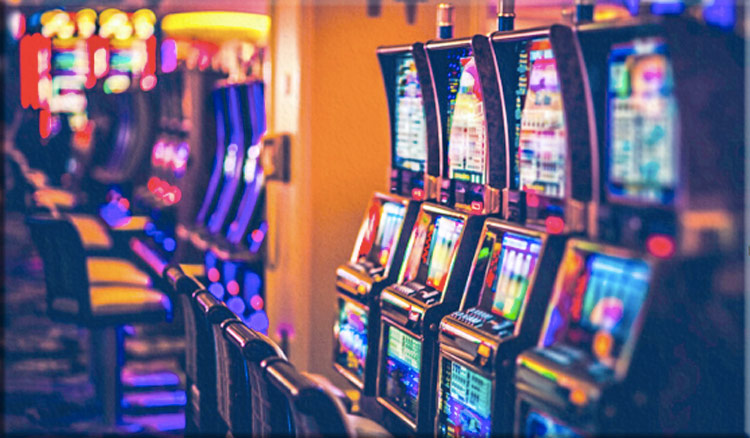
The main concern of avid gamblers who are transitioning to online casinos is whether the games are fair or not.
Unsurprisingly, the vast majority of veteran gamblers doubt the randomness of online slots. First of all, while millennials and generation Z kids have embraced online gambling, the older generations are still wary of anything digital. We fear what we don’t understand, after all. So the fact that older gamblers shy away from online casinos is perfectly understandable.
Secondly, a lot of casino operators have entered the online gambling industry with the agenda of getting rich — quickly. If you’re even moderately acquainted with the world of online gambling, you’ve definitely heard of at least a dozen examples where rogue casinos scammed people out of their legitimate winnings.
Given these two things, I can understand why people find it hard to believe that online slots are random. I’ve had that dreadful thought appear at the back of my mind quite a few times — that feeling that I’ve been swindled by the casino.
‘Almost’ Winning
If you play slots often, you know exactly what I’m talking about; It’s those near-misses that hurt the most. Those awful, terrible situations where you’re just one symbol away from hitting that big win, but end up with a big fat zero! And it feels like somebody has deliberately stopped the reels in that position and is mocking you from afar — be it the casino itself, the RNGeesus, Lady Luck, or whomever.
Be that as it may, I’m well aware of how slot machines work. Hence, I simply cannot blame my lack of good fortune on the casino or the game itself. They are random, and are deliberately designed to pay out less than they take in. As a matter of fact, that’s the nature of all games of chance.
Here, I’ll explain the core principle behind online slot machines and show you how they operate and how they achieve randomness. The information won’t help you win more often or increase your chances of winning in any way; but it will help you come to terms with the fact that online slots are fair. So, let’s take a look at how random slots truly are.
RNG, PRGN, and RTP
These are the three most important abbreviations of every slot lover. Random Number Generator and his brother-in-law, Pseudo-Random Number Generator, are the culprits behind the results of a slot game. I’ll explain them thoroughly later on. For now, let’s talk about the RTP.
Now, most gamblers are familiar with the concept of the Return to Player (RTP). Simultaneously, they only understand it on a surface level. At its core, the RTP simply shows you how much money you can expect to win, on average, in relation to the amount of cash you wager.
So an RTP of 97%, for instance, would mean that gamblers will win back 97% of the money you “invested” in the slot game. That’s perfectly fine, right? Casinos need to earn money, so it’s only natural that the games are designed to pay out less than they take in.
“How can a slot be random and have a fixed RTP?!”

I was baffled when I first ran into this comment on one of the online gambling forums. The trouble is, people often misinterpret what the “house edge” truly entails.
The main issue is a fundamental lack of understanding of how percentages work. An RTP of 97% doesn’t mean you’ll always win $97 for every $100 you wager. You might not win a dime off of your $100. Conversely, you may win $100,000 with a single $1-spin.
The RTP represents the average payout percentage of a slot. In other words, it’s calculated across billions of spins. In the long-run, the wins and losses nearly cancel each other out. The end result, however, is that the machine ends up with slightly more money than the players. Still, that doesn’t mean that you will always lose in the long-run.
It means that, based on percentages and probability, the collective of all gamblers playing that particular slot will be at a loss. However, this isn’t set in stone either. It may happen that 10 people in a row hit jackpots and “empty out” the casino. Again, the chances of this happening are very, very slim; but it is not impossible.
Cue Balls in a Box
Let me illustrate this point with a thought experiment. Say you have 10 cue balls in a box and a slit where you can put your hand in and pull one out. Of course, you do not see the balls until you pick one at random and get it out of the box.
You bet $5 to pull a single ball, and you need the one numbered 7 to win. Your chances are 1 in 10, right? After each bet, you put the ball back in and shake the box. The second time around, the odds of getting the 7 ball are still 10%. However, if you’re lucky enough to get it, you’ll win $50.
So, although the chances are 10%, the win is 10x your bet. This would mean that the RTP is 100%. In other words, there is no house edge. Does that mean you’ll always break even when playing this game? Of course not.
It merely means that, mathematically speaking, your chances of winning money are exactly the same as the chances of losing your entire bankroll. You may never pull the 7, or you may pull it seven times in a row.
There’s no way to “cheat” or “figure out” the system. It’s purely random.
Online slots work on the exact same principle, only with a few extra steps and a variety of variables that affect the game’s payout percentage.
How Is RTP Calculated
Needless to say, online slots are a bit more complex than our made-up game. However, they do come down to playing with percentages.

Admittedly, slots often appear less profitable than they truly are. There’s a multitude of reasons for this, but it mainly comes down to the fact that there’s only a handful of combinations that provide significant payouts. And that, right there, is the catch and the main reason why so many slot players believe that slots are “rigged” and “not random.”
The general rule of thumb, when it comes to slots (both in online and in land-based casinos) is that they feature a bunch of low-paying symbols. So, when you get three bells, for instance, you only technically win. The trouble is, the payout is smaller than your bet.
This is counteracted by the fact that three sevens, for instance, pay out 100x your bet. Bear in mind that this is just one of the factors that directly impact the RTP. You also have to account for the number of reels, the number of symbols on each reel, the number of paylines, bonus features, Wilds, Scatters, and so on.
As you can imagine, it takes quite a bit of programming knowledge to put this all together. Therefore, it would be excruciatingly difficult to “rig” slot machine games to produce seemingly random results and those near-misses I talked about, while still maintaining the illusion of random.
The programmer would have to manually write a code that would produce these combinations. And however complex the code ends up being, players would notice the pattern — the exact same symbols would be appearing once the algorithm completes the full cycle.
Instead, what slots rely on to recreate the randomness of our thought experiment is the Random Number Generator.
Random Number Generator
Many people are of the opinion that anything man-made cannot be truly random. Therefore, they conclude that it’s impossible for slots to truly generate random numbers. This opinion is nonsensical on so many different levels; I’ll try to explain why, without going into too much detail regarding the programming side of things.
Again, I risk oversimplifying things, but I firmly believe it’s best to explain RNG in layman’s terms. Say you have an algorithm that pulls a random number between 1 and 100. Each of these numbers represents a specific symbol on one slot reel. Whenever you hit the “spin” button, the algorithm pulls a random number for all five reels.
So, whether you match three identical symbols on any of the paylines is purely random, correct? An algorithm such as this one is pretty straightforward. It merely pulls one number from the database. If you google “Random Number Generator” and set the values to 1 and 100, and hit generate, you’ll see how it works in practice.
Think of hitting 100 as the progressive jackpot, and see how many times it turns it takes you. You might hit it in 2 turns, or it might take a thousand hits of the “generate” button to get there. And that’s precisely what I’m trying to emphasize — this is the way percentages work.
If every time you generate a number it was automatically removed from the string, that would be a different story. Then, a 100 “spins” would guarantee you’ll get the jackpot number. However, that would just be pointless, wouldn’t it? You’d know that, if you hit a big win on the 18th spin, you’re guaranteed to lose money on the next 82 spins.
Pseudo-Random Number Generators
Another, even more commonly used method to determine the outcome of slot games, is the PRNG. The main difference between it and its predecessor is that the pseudo-random number generator starts from a predetermined point.
The common formula developers rely on to develop the pseudo-random number generator for their games is the Mersenne Twister. This formula takes a “seed” number as a starting point, then employs a series of complex mathematical operations to generate a number that appears random.
This RNG is “pseudo” because, whenever you input the same seed, it will generate the exact same number (the math equations do not change). In other words, the numbers aren’t completely random. However, each machine features a plethora of seeds, and often includes other variables that affect the outcome of each spin.
So, although it is theoretically possible to spin through each seed and employ a program that would memorize each outcome, it would take years. Plus, every time you load up the game, it will start from a different seed.
In hindsight, it would be pointless to try and reverse-engineer the PRNG, since the potential payout isn’t worth all the trouble. Plus, the casino would ban you for cheating, but that’s a totally unrelated issue.
The Slot HAS to Pay Eventually, Right?
This is one of the most common misconceptions about slots; and again, it stems from the fundamental misunderstanding of percentages. A surprising number of gamblers tend to prowl around the casino floor, looking for machines that have taken quite a bit of someone else’s money.
Then, due to this false belief, they sit down expecting that the slot has to pay out eventually. This is technically true. There are several extremely lucrative combinations. Eventually, if you spin it an infinite amount of times, the reels will stop in the right position.
The problem is, there is absolutely no way to determine when that will happen. Just because someone lost a hundred times in a row doesn’t mean that they’re sure to win in the next few spins.
If you’re of this opinion, you need to make peace with this fact and adopt a fundamentally different approach to slots. Otherwise, you’ll go insane before you find a “strategy” that will guarantee your profitability on this game of chance — because there is none.
Again, this is an oversimplification and the algorithm slots use is a lot more complex, but you get the idea.
It All Comes Down to Luck
As you can see, the outcome of slots truly is random. There are dozens of variables that determine which symbols appear after each spin, but it’s out of your or the casino’s control. So, the last thing you have to worry about when playing online is whether the slots are truly random.
If you don’t believe me, or the particular casino you’re playing in, there’s always eCorga you can rely on. This is an independent, internationally-approved testing agency that audits the RTP of games in online casinos to ensure their integrity and fairness.
So, if you’re still paranoid that slots are rigged after reading this text, the way I see it — you have two options. Either stop playing slots altogether, or play in casinos tested and approved by eCorga.
If you do opt to continue playing slots, remember that it all comes down to luck. There is no villain behind the scenes holding a remote control, deciding when and how much you’ll win. As with all games of chance, “you win some, you lose some.”
